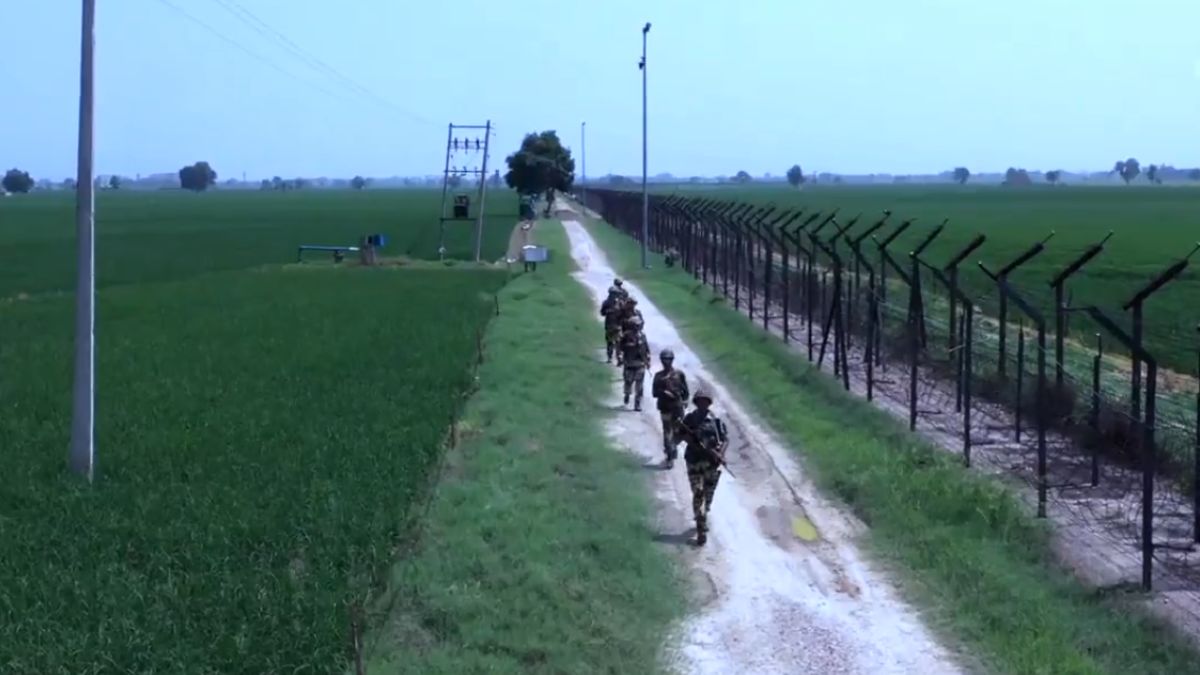Pakistan-Afghanistan Tensions Simmer As Islamabad Warns Kabul Of ‘Open War’ Amid Istanbul Peace Talks

The Istanbul talks follow a fragile ceasefire recently brokered after weeks of skirmishes along the border. Image courtesy: RNA
Pakistan and Afghanistan on Saturday (October 25, 2025) launched the second round of peace talks in Istanbul, even as Pakistani Defence Minister Khawaja Asif issued an aggressive warning to Kabul, cautioning that an “open war” could erupt if the negotiations fail.
The talks, mediated by Turkey and Qatar, come at a time when bilateral tensions have been running high across the Durand Line. Tensions between the two neighbouring countries flared up earlier this month when Pakistan conducted air strikes in Kabul, when Taliban Foreign Minister Amir Khan Muttaqi was on a 6-day India visit.
Pak-Afghanistan peace talks: Who’s at the table this time?
The Afghan delegation, led by Deputy Interior Minister Rahmatullah Mujib and including Anas Haqqani, brother of the Taliban’s Interior Minister Noor Ahmad Noor, represents Kabul’s powerful security bloc. On the other side, Pakistan has sent a two-member team of senior security officials.
Asif, who headed the first round of discussions in Doha last week on October 18–19, told reporters in Sialkot that the outcome of the new talks could be made public by Sunday. “If the dialogue fails, Pakistan may have no choice but to engage in open conflict with Afghanistan.”
However, both sides appear to be seeking peace, he was quoted as saying by The Daily Times.
Is Islamabad pushing for an oversight mechanism?
According to Pakistani media reports, Islamabad is pressing for the creation of a “third-party oversight structure”, possibly co-chaired by Turkey and Qatar, to monitor compliance and verify progress in implementing commitments. Pakistan’s key demand at the Istanbul talks is a “concrete and verifiable commitment” from Kabul to eliminate sanctuaries of the banned Tehreek-i-Taliban Pakistan (TTP) on Afghan soil.
Islamabad alleges that the TTP continues to use Afghan territory to plan and execute cross-border attacks.
What’s fueling Pakistan’s growing unease?
The latest talks unfold amid a steady deterioration in Afghanistan–Pakistan relations, punctuated by frequent border clashes and rising mistrust. The Pakistani establishment was reportedly angered by Afghan Foreign Minister Muttaqi’s visit to New Delhi earlier this month, a diplomatic outreach that Islamabad viewed as a strategic tilt towards India.
Significantly, drone attacks were reported in Kabul on the first day of Muttaqi’s India visit, adding to the atmosphere of suspicion and volatility between the two neighbours.
Pakistan-Afghanistan tensions: Could water become the next flashpoint?
Beyond security, water politics is emerging as a new pressure point. Following India’s suspension of the Indus Water Treaty earlier this year in retaliation for Pakistan-linked terror attacks, Afghanistan has announced plans to construct dams on the Kunar River, which flows into Pakistan’s Chitral region.
Taliban Deputy Information Minister Muhajer Farahi confirmed that Supreme Leader Hibatullah Akhundzada had instructed Kabul’s Ministry of Water and Energy to begin dam construction immediately, using domestic contractors rather than waiting for foreign assistance.
The Kunar (Chitral) River, originating in Pakistan’s Gilgit-Baltistan region and running through Afghanistan before merging with the Kabul River, serves as a critical waterway for both nations, making it a potential trigger for future disputes.
What lies ahead for the fragile truce?
The Istanbul talks follow a fragile ceasefire recently brokered after weeks of skirmishes along the border. Yet, with Pakistan issuing threats of “open war” and Kabul asserting its right to develop shared river systems, the road ahead remains fraught.
As regional observers note, these negotiations may not only determine the future of Pakistan–Afghanistan security relations but could also set the tone for the next phase of South Asia’s shifting power balance.







